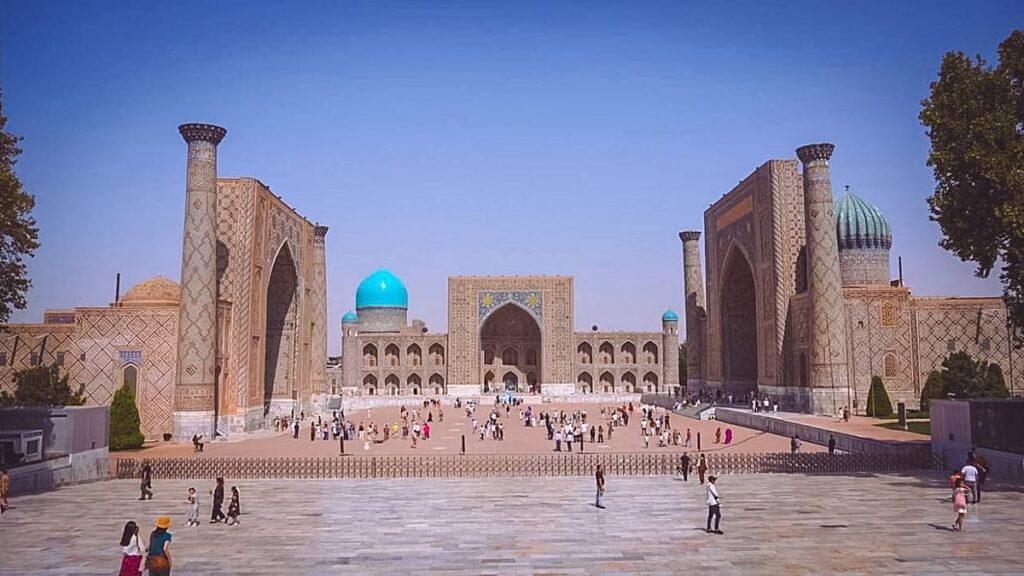By Rushana Aliakbarova
Published on
Autumn 2025 finds Uzbekistan at a turning point for its hospitality industry. In just nine months of 2025, 8.6 million foreign tourists have visited the country, according to figures from the country’s Tourism Committee, 112 per cent more than in the same period a year earlier.
This surge places Uzbekistan among the fastest-growing destinations in Central Asia and underscores a broader trend. The hotel sector is no longer just a part of tourism, but a driver of economic growth.
That shift took centre stage at HORECA EXPO Uzbekistan 2025 in Tashkent.
The international exhibition brought together more than 100 companies, 67 speakers and over 3,000 professionals from the hotel, restaurant and catering industries. Its theme, “Investment in Service and Comfort: Business Solutions for HORECA,” captured the mood of the year – one focused on quality, training and smarter infrastructure.
A growing market, a new mindset
According to Shukhrat Isakulov, head of the Department for Tourism Development under Uzbekistan’s Ministry of Ecology, the rapid rise in visitor numbers is driving new priorities for the sector.
“If in 2016 we had just over three million foreign tourists, this year we expect 11 million,” he told Euronews. “Such growth requires new hotels, better infrastructure and qualified staff. That’s why events like HORECA EXPO matter.”
Isakulov noted that the government now offers targeted subsidies for investors in tourism infrastructure, including hotels, cableways and recreation facilities – part of a wider effort to modernise the hospitality landscape and create new jobs.
European expertise meets local opportunity
For Akustik Norco Interior, a Swedish company specialising in acoustic and interior solutions, Uzbekistan’s fast-changing market presents an opportunity to bring European design standards to Central Asia.
“It’s a learning session for us,” said Andreas Hultfeldt, sales director. “Acoustics aren’t yet fully developed here, so we can bring our experience and bespoke design to fit the market. If Uzbekistan grows, our solutions can grow with it.”
Hultfeldt says the company’s integrated engineering and production model enables it to manage projects from the first concept to completion – an approach well-suited to Uzbekistan’s expanding hotel sector.
Technology is also changing how hotels reach guests. MyBooking.uz, a domestic online platform developed by Overture Technologies, positions itself as a national alternative to global booking systems. Unlike international services, which often charge high commissions and prioritise major hotel chains, MyBooking.uz promotes local properties and works directly with independent hotels, guesthouses, and eco-lodges.
“We promote the country first, and then the hotels,” said Matvey Kuznetsov, head of business development. “Our goal is to make Uzbekistan more visible while keeping more of the value inside the local market.”
The platform uses smart algorithms to tailor recommendations for travellers based on language, budget, and location preferences. Integrated payment tools and automated feedback collection help hotel owners analyse demand and adjust prices in real time.
Developers say the system’s machine-learning module will soon enable hotels to forecast occupancy levels and seasonal trends – a feature that can make smaller businesses more competitive without large marketing budgets.
Local suppliers find their place
At the same time, domestic companies are taking on a bigger role in the value chain. Enterprises such as Hotel Line – a local manufacturer of hotel textiles, furniture and amenities-, now supply an increasing share of Uzbekistan’s hospitality market. In its Tashkent workshop, sheets and towels are produced to international standards, while designers work on custom furniture and décor for new hotels and guesthouses.
Company representatives say demand has grown sharply over the past two years as international operators begin sourcing more materials locally. The shift not only shortens delivery times but also allows hotels to maintain consistent quality while supporting the local economy.
“We’re seeing more interest from both foreign and domestic clients who want reliable supply within the country,” says Maria Safarova, head of marketing at Hotel Line. “When hotels open in Samarkand or Bukhara, they often look for products that meet global expectations but are made here in Uzbekistan.”
In the historic city of Bukhara, Miragha Seyidov, manager of Mercure Bukhara, sees the change firsthand. The property, part of the French Accor chain, is one of the few internationally branded hotels in the region. Behind its restored brick facade, it combines local craftsmanship, carved woodwork, and hand-woven fabrics with international service standards.
“We work closely with Uzbek companies providing textiles and hotel amenities,” says Seyidov. “It’s about building trust and quality together. Guests notice when local materials are used. It gives the place character, and it keeps value within the community.”
For Seyidov, cooperation with domestic suppliers has become part of the hotel’s philosophy. The approach mirrors the broader shift across Uzbekistan’s hospitality market, where global brands increasingly rely on local partners to meet rising standards and growing demand.
Read the full article here


